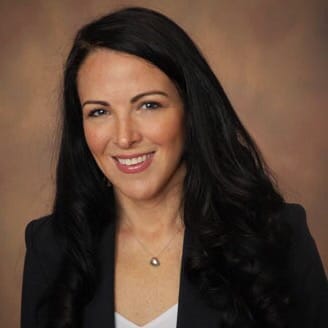A month after graduating college, I was living out of my car and sleeping on a friend’s couch in Columbus, Ohio. I had no job, no connections, no internship experience. I worked as a part-time babysitter, and I frequently paid for gas with quarters. Sometimes I slept in my car.
This wasn’t uncommon or uncomfortable for me. I grew up in Dresden, a village tucked in the valleys of southeastern Ohio. When I was a kid, my parents left their blue-collar jobs to study at Ohio University. They drove 120 miles a day to get to class, and graduated with honors. But in a dying rural economy, they never found steady employment. During lean times, we relied on programs such as food stamps and Section 8 to make ends meet.
Although we didn’t have a lot of money, I had a happy childhood. My parents gave me a love of learning and the courage to go to college. However, over time, I built a new identity and omitted many formative parts of my past from my story. I never told people about the hardships that I faced. I was ashamed of my own experiences in poverty, and I hid them from those around me.
During my long job hunt after college, I volunteered on political campaigns. I realized that this work could empower me to help people struggling in similar circumstances, and I began to build a career as a political fund-raiser. Although I was working for politicians who championed the working class, I kept my background quiet. When my job took me to New York City, and eventually to the campaign of New York State Attorney General Eric Schneiderman, I found myself frequenting penthouse parties and power breakfasts with some of the most influential business leaders in the world. At one event, I met Ron Moelis W78, and I learned how real estate developers approach building affordable housing. This issue was deeply personal to me, and it made me interested in learning more about how business leaders can impact society. Once again, I kept quiet about my personal connection to the subject, but experiences like this motivated me to apply to Wharton—and to begin to change my narrative.
Wharton has opened so many doors for me. I achieved my top professional goal—recruiting for investment banking and receiving a full-time offer. With my unconventional background, becoming a banker always seemed out of reach. But with the help of Career Services, Wharton alumni, and dozens of my classmates, I built the confidence to pursue this career. Throughout my Wharton experience, I saw that many of my classmates were struggling with the uncertainties of their futures, just as I was. I met students grappling with family pressures, those trying to balance relocation and their partners’ jobs, and international students turned away from dream jobs because of visa requirements. And here I thought that trying to explain to my family that I wasn’t going to school to be a bank teller was frustrating.

Stephanie Rodgers WG17
Wharton helped me prepare for this career change and to understand more of the struggles that people from poverty face. For example, when my parents found new jobs and things were looking up, something always seemed to happen to set our family back. Professor Robert Inman’s Urban Fiscal Policy course explained how difficult it is for people to escape poverty. When you start earning above a certain threshold, government benefits are cut, leaving gaps in an already tight budget.
Much of my learning happened outside the classroom, through traveling with classmates and participating in a Wharton Global Modular Course. I had never left the United States before, and I quickly saw the problems that people in other countries face. Graffiti and crime in Athens, gender inequality in the Middle East, the aftermath of natural disasters in Christchurch, global warming in Australia, deep poverty in Addis Ababa—these put my own upbringing into perspective. Life in rural Ohio looked quite luxurious in comparison.
This winter, I overcame one of my biggest fears—talking openly about my personal experiences with poverty. I invited my classmates to my home at 18th and Chestnut to talk about rural America and the election—to share my own understanding of what it meant to grow up in a working-class family. I used to plan these types of dinners for politicians, but I had never discussed one of my own issues. Halfway through our conversation, one of my classmates said that everything that I described sounded incredibly familiar—that if the race of the people in my story was changed, the setting could move from rural middle America to many inner cities. It was striking how similar people’s struggles are.
At the end of fall semester, Wharton Women in Business board member June Wu WG17 asked me to write about my journey for WWIB’s “Women of Wharton” series on social media. It’s a tale I was once so afraid to tell. The words didn’t come easily, but thanks largely to my experience at this school, I’ve learned that we all have our own causes, our own battles, and our own fears. The onus is on us to share our stories and to seek out those of others.
Stephanie Rodgers WG17 will join Bank of America Merrill Lynch as an investment banker after graduation. Previously, she served as a consultant for the NYAG, the Latino Victory Fund, and numerous Democratic candidates across the U.S.
Published as “Secret No More” in the Spring/Summer 2017 issue of Wharton Magazine.


























